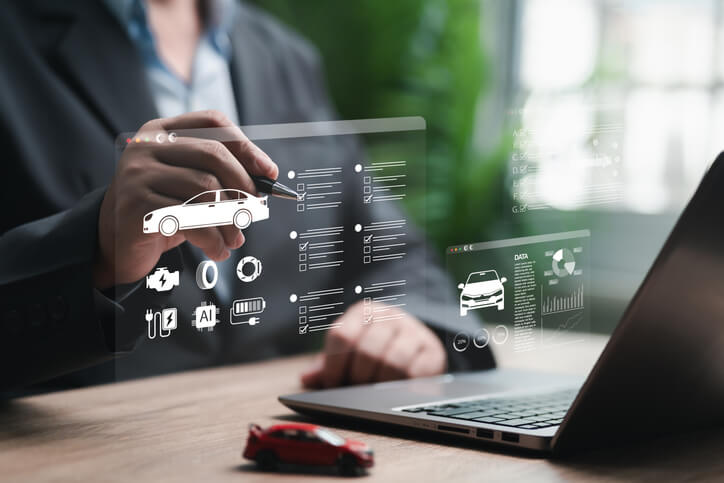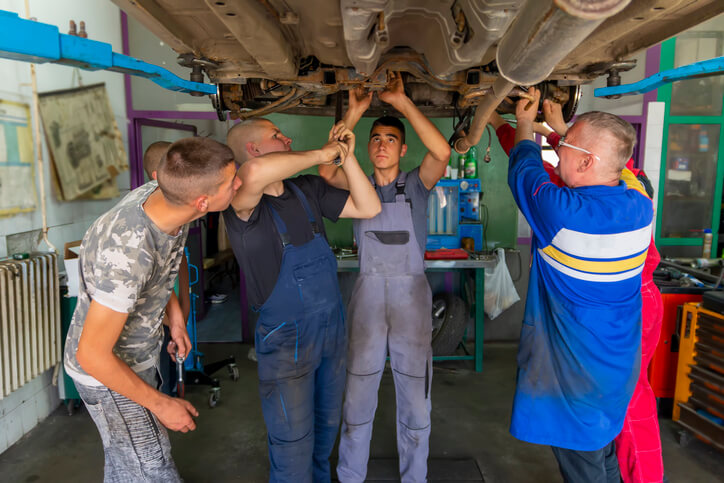AI in Auto Repair: How Smart Diagnostics Will Support Tomorrow’s Mechanics
Artificial Intelligence (AI) is rapidly changing the way auto mechanic training graduates work with cars. Modern vehicles are equipped with numerous sensors and onboard computers that generate massive amounts of data. Sorting through all that information manually can be time-consuming. AI-powered systems, however, can analyze it in seconds, identifying patterns and even predicting potential problems before they happen.
For students enrolled in auto mechanic training, this shift means learning not only how to use traditional tools but also how to partner with advanced technology. AI is not here to replace mechanics. It’s here to make them faster, more accurate, and more valuable in the shop.
AI-Powered Vehicle Diagnostics
Modern diagnostic systems do far more than just read error codes. Using AI, these platforms compare data from thousands of vehicles, recognize patterns, and suggest possible fixes. This saves time, reduces guesswork, and helps ensure customers get reliable solutions the first time around.
For aspiring technicians, the rise of vehicle diagnostics powered by AI means you’ll be working with tools that can highlight likely causes of issues right away. Instead of spending hours chasing down a problem, you’ll be able to confirm the system’s suggestion and move quickly to the repair.

From Reactive to Predictive Maintenance
After vehicle diagnostics, one of the most exciting applications of AI is predictive maintenance. Rather than waiting for a part to fail, AI can detect early signs of wear and alert technicians and drivers before a breakdown occurs. Imagine being able to replace a failing battery or address a worn component weeks before it strands a driver on the road.
This is good news for mechanics, too. Predictive maintenance allows for more proactive repairs, builds customer trust, and makes shop schedules easier to manage. As a student, mastering predictive tools now will give you a big advantage when these systems become standard in every garage.
How Smart Diagnostics Support Mechanics
AI-powered tools aren’t replacing mechanics. They’re supporting them. These systems take care of the heavy data crunching so you can focus on the actual repairs. Even new technicians fresh out of auto mechanic school will find that AI makes it easier to handle complex jobs with confidence.
Smart diagnostics also help with customer communication. Many platforms produce clear, visual reports that explain what’s wrong and why a repair is needed. When customers see this, they feel reassured and are more likely to approve necessary work. That’s a benefit for both mechanics and businesses.

Preparing for the Future in Training
As cars become more advanced, mechanic education and auto mechanic training programs are adapting. Training programs now include modules on computerized systems, data analysis, and even hybrid and electric technologies. Students not only learn how to turn wrenches but also how to use laptops, scan tools, and AI-driven software.
For those in Cambridge, programs like the Cambridge Automotive Service Technician course are designed to prepare students for this reality. By practicing on real diagnostic tools and gaining exposure to smart technologies, graduates are job-ready for the shops of tomorrow.
Auto Mechanic Training and the Road Ahead
AI in auto repair represents a new era of opportunity. Mechanics who know how to combine hands-on skills with AI-powered insights will be in high demand. Whether it’s predictive maintenance, smart diagnostic platforms, or hybrid vehicle systems, the future of repair is both high-tech and hands-on.
Are you ready to start your journey? Explore an auto mechanic school program in Cambridge and gain the skills to thrive with tomorrow’s diagnostic tools.


